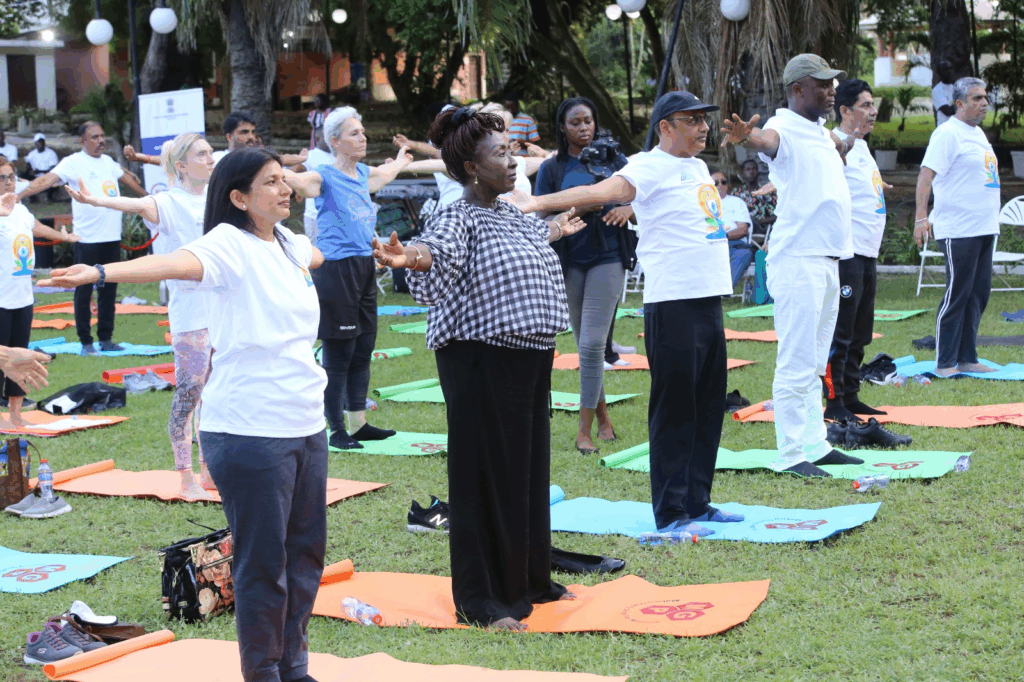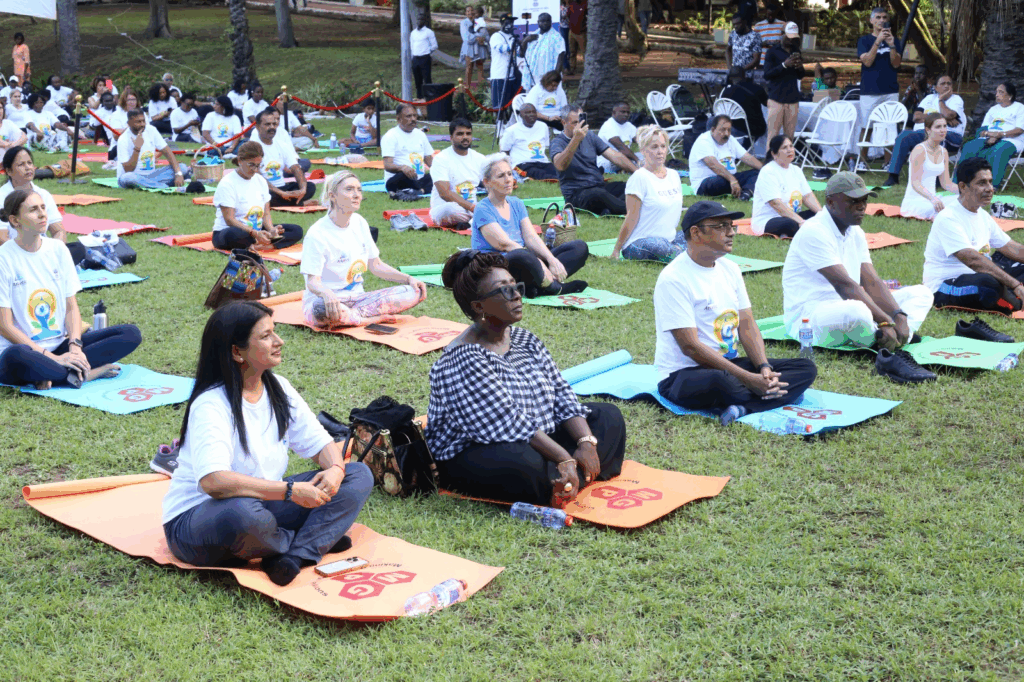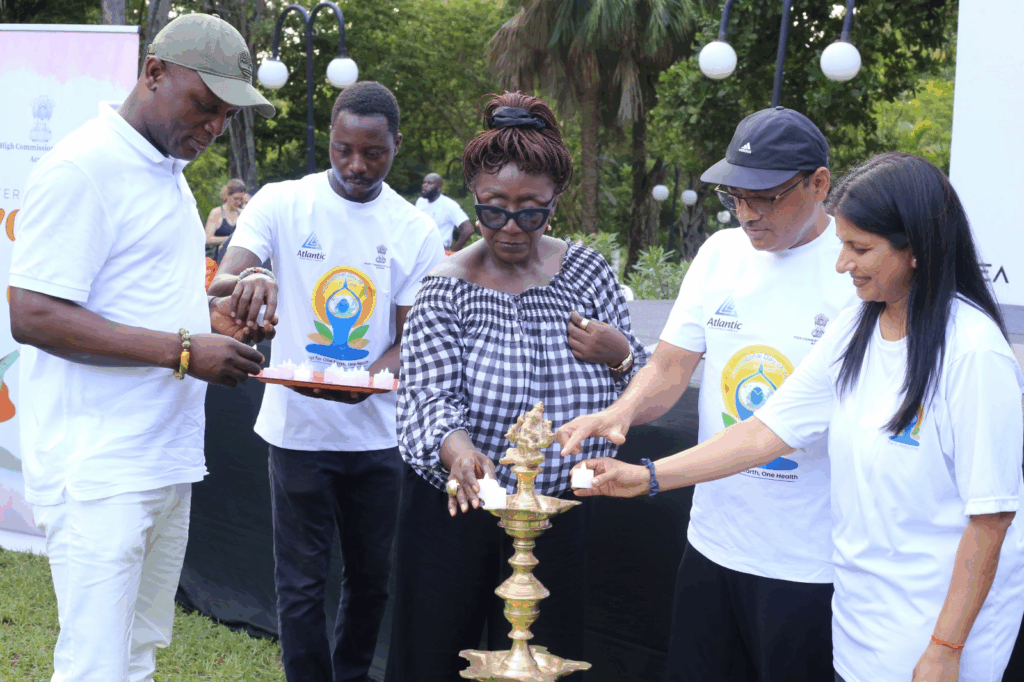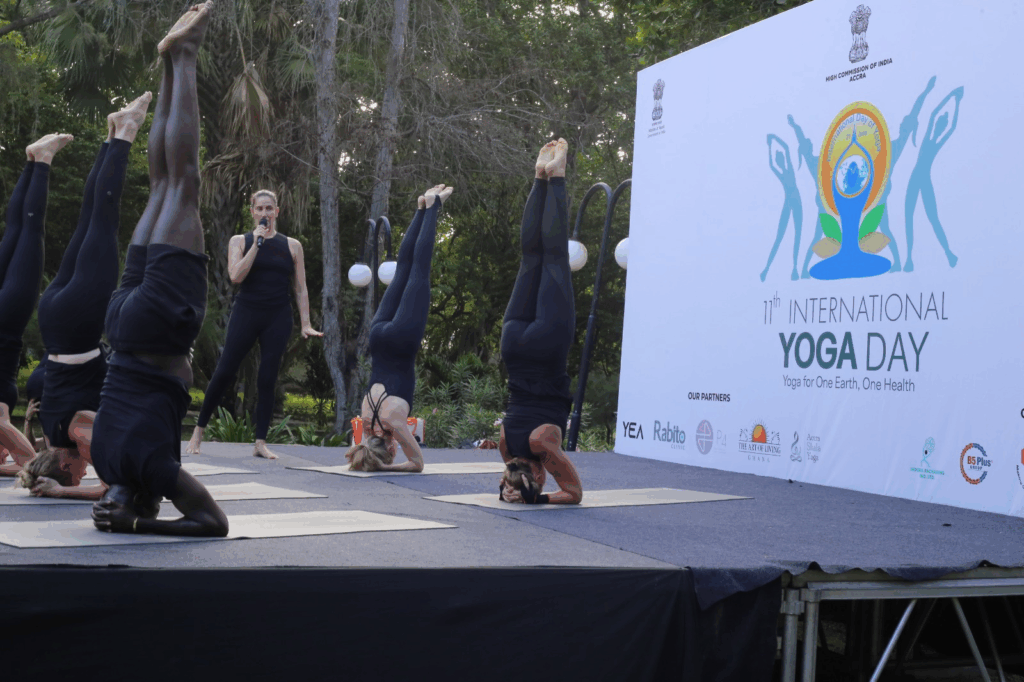In a display of cultural diplomacy and global solidarity, the Government of Ghana and the Indian High Commission marked the 11th International Day of Yoga with a historic joint celebration at Osu Castle—an iconic symbol of Ghana’s heritage.
The event reinforced yoga as more than an ancient wellness practice—it became a bridge of shared values, public health awareness, and bilateral friendship between Ghana and India.
The celebration, attended by high-ranking government officials, diplomats, yoga practitioners, students, and civil society actors, highlighted the convergence of two nations committed to human well-being, peace, and cross-cultural understanding.

Under the theme “Yoga for Self and Society”, the program emphasised how the ancient Indian discipline continues to offer answers to modern challenges of mental health, lifestyle diseases, and social disconnection.
Wellness as Soft Power: India’s Strategic Cultural Diplomacy
Delivering the opening remarks, India’s High Commissioner to Ghana, Manish Gupta, made a compelling case for yoga as a cornerstone of India’s cultural diplomacy and a gift to the world.
“Yoga is not confined to mats and postures—it is an evolving science of life, rooted in balance, breath, and self-awareness. It aligns the body, mind, and spirit to serve society better,” he said.
He lauded Ghana’s robust engagement with yoga over the past month through regional observances in Tamale, Kumasi, Ho, and Cape Coast, facilitated by local partners.
“Your enthusiasm reaffirms that yoga is a truly universal language—free of politics, religion, or race,” he added.
Personal Testimony, National Message
In a rare fusion of personal experience and public service, Abla Dzifa Gomashie, Ghana’s Minister for Tourism, Arts and Culture, shared a moving reflection about her father’s devotion to yoga and how it may have contributed to his longevity of 106 years.

“Watching him stand on his head with such grace as a child taught me that wellness is discipline—and joy,” she recalled.
Her speech, though deeply personal, struck a national chord as she called for greater inclusion of yoga and wellness practices in Ghana’s national health and cultural agenda.
“Today’s celebration is not just ceremonial; it is a call to reflect on how we treat our bodies, how we manage stress, and how we live in community,” she said.
A Strategic Wellness Conversation: Health, Youth, and Development
Also present was Kofi Iddie Adams, Ghana’s Minister for Sports and Recreation, whose participation signaled government interest in integrating alternative wellness models like yoga into mainstream health promotion, sports policy, and youth development.
As lifestyle diseases rise and mental health becomes a national concern, the event provided a fresh conversation starter on preventative health and community-centered wellness.
The celebration included mass yoga sessions led by certified instructors, breathing exercises, mindfulness meditation, and a showcase of traditional Indian and Ghanaian cultural expressions—blending drumming, music, and rhythm to create a multisensory wellness experience.

A Cultural and Diplomatic Milestone
The presence of both Indian and Ghanaian symbols—flags flying side by side, drummers performing alongside sitar melodies—gave the event a symbolic weight far beyond a physical workout.
It marked a renewal of cultural cooperation, reminding both countries of their shared values: spiritual growth, discipline, communal harmony, and peacebuilding.
“This is not just about yoga. It is about how we see health as a whole person experience,” said one participant from Ho, who attended with her family.
“It shows that Ghana and India are not just trade partners—we are partners in people.”

Looking Ahead
As the sun dipped over the Atlantic behind the castle, participants dispersed not just with relaxed muscles but with renewed minds—bearing witness to a rare convergence of policy, tradition, diplomacy, and personal transformation.
With both countries looking to strengthen bilateral relations beyond trade and technology, yoga now stands as a strategic symbol of soft power, shared humanity, and visionary leadership in global wellness diplomacy.